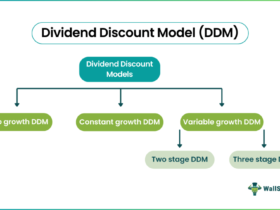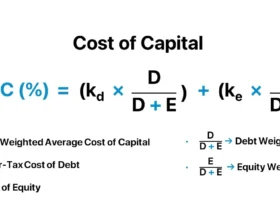Have you ever considered that beyond technical expertise, there’s another crucial factor that can set you apart in the financial industry? That factor is networking a powerful tool you can build by becoming part of associations, organizations, and clubs. These are not just platforms for learning but gateways to connecting with industry leaders, gaining inspiration, and unlocking new opportunities that can propel your career to new heights.
1 Why is Joining Associations, Organizations, and Clubs Important?
In today’s ever-evolving financial industry, having technical expertise alone is no longer sufficient. Associations, organizations, and clubs not only provide access to fresh insights but also create opportunities to expand your professional network, a critical factor in long-term career growth. Let’s explore the key reasons why this should be part of your professional journey.
1.1. Expanding Your Professional Network
Building relationships in the financial sector is often the gateway to success. Connections do more than secure job opportunities they create platforms for knowledge sharing and collaboration.
Example in Action:
A fresh graduate joined CFA Society Vietnam and attended industry-specific seminars. Through engaging in conversations with industry leaders, they landed an internship at a top-tier investment fund.
What’s the takeaway?
According to LinkedIn, 85% of job openings are filled through networking. By joining such organizations, you don’t just find opportunities you also gain insights and mentorship from seasoned experts.
1.2. Strengthening Soft Skills Through Real-World Practice
Success in finance is not just about numbers but also the ability to communicate, collaborate, and present ideas effectively. Many organizations provide hands-on environments to refine these essential skills.
Practical Story:
A junior banker improved her public speaking skills by actively participating in Toastmasters Club sessions. Her newfound confidence allowed her to deliver a winning financial strategy presentation, earning her a promotion to project manager.
This highlights the importance of soft skills, which Deloitte’s report states are prioritized by 92% of employers over technical qualifications. Public speaking clubs like Toastmasters provide an excellent platform to enhance these skills.
1.3. Staying Ahead with Industry Knowledge
In the fast-changing world of finance, staying updated with new trends like FinTech or ESG Investing is a non-negotiable requirement. Associations serve as a bridge to cutting-edge industry insights.
Case Study:
An auditor attending an IFRS 16 seminar by ACCA transformed his company’s financial reporting practices using newly acquired knowledge. His innovative approach earned him a leadership role.
Missing out on trends can set you back, but organizations like ACCA and CFA ensure you are always a step ahead. Regular workshops and training give you a competitive edge and keep your skills relevant.
1.4. Unlocking Real-World Opportunities
Opportunities to apply your knowledge practically are invaluable. Many organizations host competitions, offer internships, or simulate real-world challenges to prepare members for the industry.
Real-Life Application:
A finance student joined the university’s Finance and Investment Club and won a portfolio management competition. This achievement not only enriched his resume but also led to an internship at a leading brokerage firm.
Such activities allow you to turn theoretical knowledge into actionable skills, which is highly regarded by recruiters. Recognition from competitions and projects distinguishes you in a crowded job market.
1.5. Building a Personal Brand
Beyond learning, associations offer a stage to showcase your capabilities. Contributing to projects or writing articles for these organizations helps establish your professional identity.
Highlight Moment:
A CFA Society member published a stock market analysis that gained traction within the financial community. The article was shared by numerous experts, cementing his credibility in the industry.
This is critical as 70% of recruiters review candidates’ online presence before hiring. By participating in community initiatives and sharing expertise, you can create a powerful personal brand that opens doors to new opportunities.
Joining associations, organizations, and clubs is not just an option it’s an essential investment in your professional journey. Whether it’s networking, gaining insights, developing skills, or building your brand, the opportunities these platforms provide can be the turning point in your career. Embrace them to unlock your full potential!
2 Which Associations, Organizations, and Clubs Are Right for You?
Not all organizations bring the same value to everyone. To make the most of your time and effort, it’s essential to choose associations and clubs that align with your career objectives and personal aspirations. Depending on your focus professional growth, community contribution, or skill enhancement there are various paths to consider. Below, we’ll explore different categories of organizations and their benefits to help you make an informed choice.
2.1. Professional Associations: The Gateway to Expertise and Networking
For those who aim to build expertise and connect with industry leaders, professional associations are a natural starting point. These organizations are tailored to specific fields, offering resources and connections that accelerate your career.
Take CFA Institute, for example, a globally recognized association for investment professionals. Through activities such as market analysis seminars and portfolio management workshops, it equips members with cutting-edge knowledge. A finance student in Ho Chi Minh City, after joining CFA Society Vietnam, attended a seminar where he met a fund manager who later offered him an internship. Beyond networking, the CFA designation itself is often regarded as the “gold standard” in the investment industry, giving members a significant competitive edge.
Similarly, ACCA (Association of Chartered Certified Accountants) focuses on corporate finance, accounting, and auditing. By attending workshops like IFRS (International Financial Reporting Standards) training, members not only stay updated with global standards but also gain practical insights that drive career advancement. One young auditor in Hanoi leveraged his learnings from an ACCA workshop to improve his firm’s reporting process, leading to a promotion.
For those leaning toward research and academic pursuits, AFA (Asian Finance Association) connects professionals and scholars interested in Asian financial markets. Through conferences and published reports, it fosters a deeper understanding of the region’s economic dynamics while linking members to a network of influential thinkers.
2.2. Community Organizations: Expanding Horizons and Building Leadership
If professional growth is about sharpening expertise, community organizations are where you expand your global perspective and develop leadership skills. By participating in their initiatives, you not only contribute to society but also cultivate qualities that are invaluable in any career.
AIESEC, for instance, is perfect for young professionals who want to combine cultural exchange with community development. It offers opportunities such as international volunteer projects. A recent graduate joined a financial literacy program in Indonesia through AIESEC and found the experience transformative. The global exposure and teamwork she gained turned her into a standout candidate, ultimately landing her a role at an international NGO.
For a broader reach, Rotary International provides platforms to engage in impactful projects on a global scale. Whether it’s supporting healthcare, education, or economic empowerment, Rotary members work on initiatives that bring real change. Beyond community service, these experiences foster collaboration and introduce you to mentors with a wealth of knowledge.
2.3. University Clubs: Bridging Theory and Practice
While professional associations and community organizations provide external opportunities, university clubs bring growth right to your campus. These clubs are excellent for students who want to apply theoretical knowledge in practical settings.
The Finance and Investment Club, for example, is a go-to for finance students interested in stock market analysis and investment strategies. Members participate in simulation competitions and strategic discussions, often with guidance from industry professionals. One student honed his stock analysis skills through the club and won first place in a nationwide investment competition, making him a sought-after candidate for internships.
For aspiring entrepreneurs, the Entrepreneurship Club offers a different angle. By attending workshops led by successful business leaders and practicing business plan development, members gain hands-on experience in turning ideas into viable ventures. These clubs also serve as a platform to connect with potential investors and advisors, giving students a head start in their entrepreneurial journey.
2.4. Personal Development Clubs: Cultivating Essential Soft Skills
Lastly, personal development clubs focus on refining interpersonal and leadership skills, which are as crucial as technical knowledge in today’s competitive job market.
A standout example is Toastmasters International, a global organization dedicated to public speaking and leadership. Through structured practice sessions and speech competitions, members learn to articulate their ideas confidently. For instance, a junior banker joined Toastmasters to overcome her fear of presenting. Within months, she became confident enough to pitch a high-stakes project to her leadership team, earning her a promotion.
These clubs provide a supportive environment where you can experiment, grow, and receive constructive feedback qualities that are hard to cultivate elsewhere.
A Unified Approach to Growth
Choosing the right organization depends on your goals, but the real magic lies in combining different opportunities. For instance, joining CFA Institute for technical expertise, Rotary International for community leadership, and Toastmasters International for soft skills development ensures a well-rounded growth trajectory. By engaging in multiple dimensions of professional and personal development, you position yourself not just as a specialist, but as a versatile leader ready to tackle diverse challenges.
3 How to Join and Maximize Opportunities?
Joining an association, organization, or club is only the first step. The real value comes from how you leverage the opportunities these groups offer to develop skills, expand your network, and build your career. Here are actionable steps to help you not only become a member but also make the most out of your membership.
3.1. Choose the Right Organization
Before joining, it’s essential to identify your personal goals and find organizations aligned with your career aspirations.
- Clarify Your Objectives:
Are you looking to enhance technical knowledge, develop soft skills, or grow your professional network?
Example: If you’re interested in investment and asset management, CFA Institute is a suitable choice. Conversely, for skills in accounting and auditing, ACCA is the ideal organization. - Research the Organization:
Understand the mission, activities, and benefits it offers.
Example: AIESEC focuses on leadership and international community development, while Toastmasters specializes in communication and public speaking. - Seek Advice:
Consult friends, colleagues, or mentors who have experience with the organization to make an informed decision.
3.2. Understand the Application Process
The process of joining varies across organizations, and understanding it beforehand can save time and effort.
- Learn the Registration Steps:
Professional associations like CFA Institute or ACCA often require online registration and membership fees. University clubs typically have simpler sign-up procedures.
Example: To join CFA Institute, you need to create an account on their website, complete your personal profile, and pay the registration fee. - Attend Orientation Events:
Many organizations hold introductory sessions or information days for new members. Use these events to understand the organization’s offerings and meet like-minded peers. - Prepare Your Personal Profile:
For professional organizations, a well-prepared profile highlighting your experience and career goals can make a strong impression.
Example: When joining AFA, attaching a financial report or research paper you’ve worked on can demonstrate your capabilities.
3.3. Actively Participate in Activities
Membership isn’t just about paying fees; it’s about engagement. Active involvement is key to unlocking the value of your organization.
- Attend Workshops and Events:
Learn from industry experts through seminars, forums, and group discussions.
Example: A CFA Society Vietnam member gained insights into financial risk management during a workshop and applied these strategies to improve investment analysis at work. - Propose New Initiatives:
If existing activities don’t meet your interests, suggest new projects to align with your goals.
Example: A member of a university Finance and Investment Club proposed a simulated investment competition, enriching the club’s offerings and providing valuable learning opportunities for peers. - Volunteer for Roles:
Volunteering to organize events or facilitate meetings builds leadership skills and strengthens connections.
3.4. Build and Maintain Your Network
Your network is one of the most valuable assets you’ll gain from joining these groups.
- Engage Effectively:
Initiate conversations with speakers and attendees at events. Prepare thoughtful questions to make a positive impression.
Example: After an ACCA workshop, a young auditor discussed financial reporting challenges with the speaker, receiving valuable advice and a LinkedIn connection. - Maintain Relationships:
Send follow-up messages or thank-you notes to those you connect with. Regular interaction helps sustain relationships.
Example: A Toastmasters member stayed in touch with former clubmates, leading to an invitation to a major presentation project at a multinational company.
3.5. Leverage Organizational Resources
Most associations and clubs provide valuable resources to help members grow.
- Use Academic Materials:
Example: Members of CFA Institute have access to an extensive library of financial analysis resources. - Enroll in Training Programs:
Many organizations, like ACCA, offer training sessions on emerging trends such as IFRS standards. These programs keep you ahead of industry changes. - Participate in Competitions:
Competitions hosted by organizations, such as portfolio management contests by university clubs, help build practical skills and enhance resumes.
3.6. Give Back and Build Credibility
Contributing to your organization not only helps others but also strengthens your professional image.
- Share Knowledge:
Write articles or share your experiences on the organization’s platforms.
Example: A CFA Society Vietnam member published a stock market analysis, gaining recognition as an expert in the field. - Support New Members:
Mentoring or guiding younger members enhances your reputation while solidifying your own understanding.
Final Thoughts
Joining an association, organization, or club is a valuable step toward continuous learning and career development. However, the real benefits come when you engage actively, connect effectively, and utilize available resources. Start with an organization that aligns with your goals, take small yet meaningful steps, and watch these opportunities pave the way for future successes.

























I found this article very informative about different types of organizations and clubs to join. It’s great to see the practical examples of how they can help in career development.
I appreciate the emphasis on actively participating in activities and building a network within these organizations. It’s not just about joining, but also engaging with others to create valuable connections.
The tips on how to join and maximize opportunities within these organizations are very helpful. I now have a better understanding of what steps to take to make the most out of my membership.
I never thought about the impact of joining associations on my personal brand. The real-world examples provided here are eye-opening and have inspired me to consider joining such organizations.
This article has shown me the importance of joining professional organizations and clubs for networking and career growth. I never realized how much value they could bring to my career!
Your article helped me a lot, is there any more related content? Thanks!
Thank you for your sharing. I am worried that I lack creative ideas. It is your article that makes me full of hope. Thank you. But, I have a question, can you help me?
JkJenJ GgP JylnCgtF CiE
hpHxZo HKLktZcn LnbGTJcg EDiurDyY
Your point of view caught my eye and was very interesting. Thanks. I have a question for you.
Can you be more specific about the content of your article? After reading it, I still have some doubts. Hope you can help me.
Your article helped me a lot, is there any more related content? Thanks!
Your point of view caught my eye and was very interesting. Thanks. I have a question for you.
This all-in-one clock radio CD player is more than just an alarm—it’s a full media hub. Along with a traditional CD player, it features AM/FM radio, Bluetooth connectivity, and a wireless remote control. Dual alarms make it easy to set different wake times, while the large LED display ensures easy readability. With rich stereo sound and multiple playback options, it’s one of the best clock radios with CD player and Bluetooth functionality. Great for music lovers who value versatility in a radio alarm clock CD player setup.
Thanks for sharing. I read many of your blog posts, cool, your blog is very good.
k1cepn
5sww5h
dmpr4l
9wlx27
Thank you, your article surprised me, there is such an excellent point of view. Thank you for sharing, I learned a lot.
Thank you for your sharing. I am worried that I lack creative ideas. It is your article that makes me full of hope. Thank you. But, I have a question, can you help me?
Thank you for your sharing. I am worried that I lack creative ideas. It is your article that makes me full of hope. Thank you. But, I have a question, can you help me?
glg7wq
I don’t think the title of your article matches the content lol. Just kidding, mainly because I had some doubts after reading the article. https://www.binance.info/si-LK/register?ref=V2H9AFPY
Your point of view caught my eye and was very interesting. Thanks. I have a question for you. https://www.binance.info/en-IN/register?ref=UM6SMJM3
Thank you for your sharing. I am worried that I lack creative ideas. It is your article that makes me full of hope. Thank you. But, I have a question, can you help me? https://www.binance.com/tr/register?ref=W0BCQMF1
Thank you for your sharing. I am worried that I lack creative ideas. It is your article that makes me full of hope. Thank you. But, I have a question, can you help me? https://www.binance.info/en-IN/register-person?ref=UM6SMJM3
Your article helped me a lot, is there any more related content? Thanks! binance registrieren
Can you be more specific about the content of your article? After reading it, I still have some doubts. Hope you can help me.
I don’t think the title of your article matches the content lol. Just kidding, mainly because I had some doubts after reading the article.
Can you be more specific about the content of your article? After reading it, I still have some doubts. Hope you can help me.
I don’t think the title of your article matches the content lol. Just kidding, mainly because I had some doubts after reading the article.
I am glad to be one of many visitors on this outstanding internet site (:, thankyou for putting up.
Thanks for sharing. I read many of your blog posts, cool, your blog is very good.
Simply wanna say that this is extremely helpful, Thanks for taking your time to write this.
Планируете вечер у моря или камерную встречу дома? Dubaialco.ru превращает задумку в праздник: внушительный выбор — от шампанского и просекко до виски, текилы и бризеров — с удобной навигацией по категориям и понятными ценами. В витрине — бестселлеры вроде Hennessy, Red Label, Patron, а также Heineken и Smirnoff Ice. Заказ оформляется в пару кликов, а доставка по Дубаю быстрая и точная. Откройте коллекцию на https://dubaialco.ru/ и найдите идеальный напиток под настроение, будь то легкий аперитив, коллекционный коньяк или сет для вечеринки.
Your article helped me a lot, is there any more related content? Thanks!
**mind vault**
mind vault is a premium cognitive support formula created for adults 45+. It’s thoughtfully designed to help maintain clear thinking
**mind vault**
mind vault is a premium cognitive support formula created for adults 45+. It’s thoughtfully designed to help maintain clear thinking
htku6v